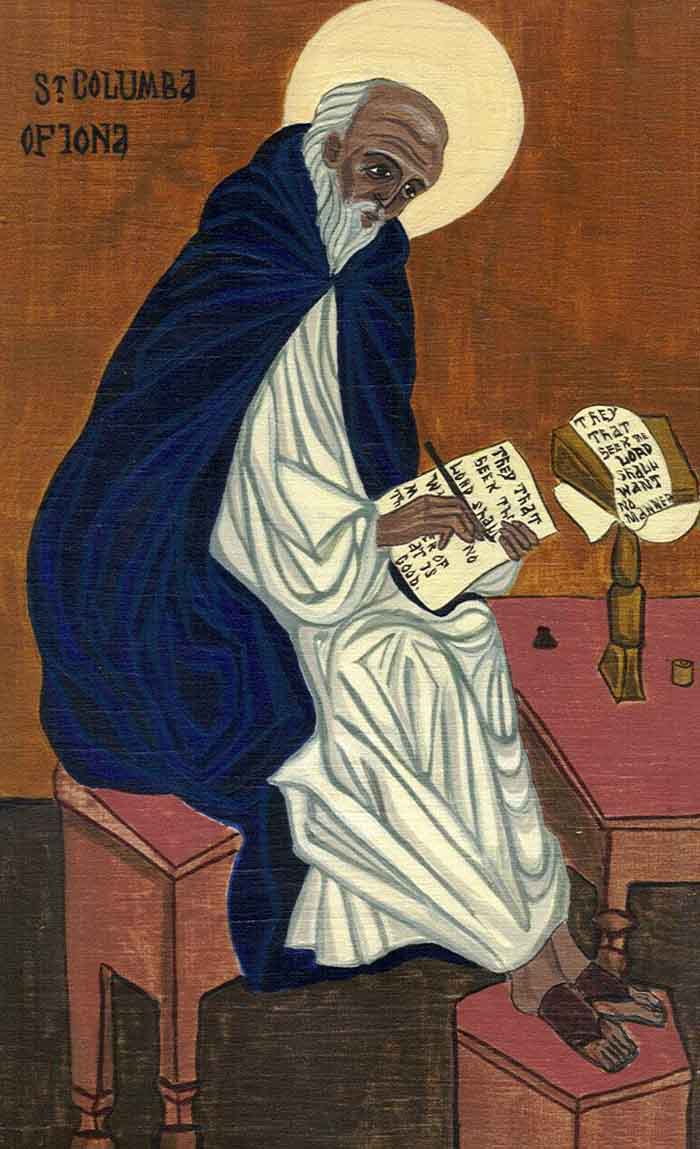The Normative Forms of the traditional Anglican Patrimony
+
The Grace is a well known feature of Anglican worship as a sentence of Scripture used to close an Office or a service of prayer. Its proper traditional Anglican form is:
The Grace of Our Lord Jesus Christ, and the love of God, and the fellowship of the Holy Ghost be with us all evermore. Amen.
It is not a part of Anglican tradition to use the Grace as an Opening Dialogue for prayer as is found in the Roman Missal of Paul VI or the new Ordinariate rite of Marriage.
Although the Funeral rite concludes with the Grace in the new Ordinariate Rite form i.e., The Grace of Our Lord Jesus Christ, and the love of God, and the fellowship of the Holy Spirit be with us all evermore. Amen., the Marriage Rite abandons the traditional Anglican word "fellowship" for the word "communion" which is not normative to the liturgical Patrimony. It is simply bad liturgy to introduce two slightly different translations of the same text. One form will be heard as 'normal' and the other will be heard as 'odd'.
Again, in the Ordinariate Marriage Rite the Grace is used in a way not normative to the Anglican Patrimony as a verse and response and is unfortunately an importation from the Ordinary Form of the Roman Missal, the sort of Latinising and hybridising we had believed we would need not endure:
The Grace of Our Lord Jesus Christ, and the love of God, and the communion of the Holy Spirit be with you.
And with thy spirit.
The Anglican ear expects to hear "fellowship of the Holy Ghost be with us all evermore. Amen." rather than "the communion of the Holy Spirit be with you."
So the first problem is the use of two slightly different forms of the same text where neither is the form of the original Anglican tradition. Once more, the original form is:
The Grace of Our Lord Jesus Christ, and the love of God, and the fellowship of the Holy Ghost be with us all evermore. Amen.
The Anglican form above is not used in the new rites. Consistently "Holy Ghost" is replaced with "Holy Spirit" and the Anglican traditional form is thrown away. A permissive rubric allows the use of Holy Ghost .... but Holy Ghost is the norm in traditional Anglican liturgy and should have been the form used in the text. "Holy Spirit" should have been permitted in the permissive rubric for those folks in England who no longer wish to say the Anglican traditional translation "Holy Ghost".
Additionally problematic is that it is not normative in the Anglican Patrimony to use the Grace as an opening dialogue. Nonetheless, the Grace as the opening dialogue can be found in a few number of Anglican Orders for the Eucharist where the form is not the Biblical one but that of the ancient Liturgy of St. James of Jerusalem. This form can be found in a number of Anglican books especially the Bombay Liturgy of the Anglican Church of India (used far more than Colin Buchanan admits in his dismissal of the rite). The proper form then with a minority Anglican precedent should have been:
The love of God the Fa + ther; the grace of the only-begotten S + on; and the fellowship and indwelling of the Holy Spi + rit be with you all, my brethren, for ever (or forevermore).
THE PEOPLE: And with thy spirit.
To conclude, the forms of the Grace found in the new Ordinariate rites for Marriage and Burial are not consistent with the overwhelming Anglican normative tradition regarding the use and translation of the Grace. With respect to the Anglican Patrimony, these forms are not part of the standard worldwide Anglican Patrimony. They do not belong and should be replaced with the traditional forms from the Patrimony.
+Kyrie elision imas.
















